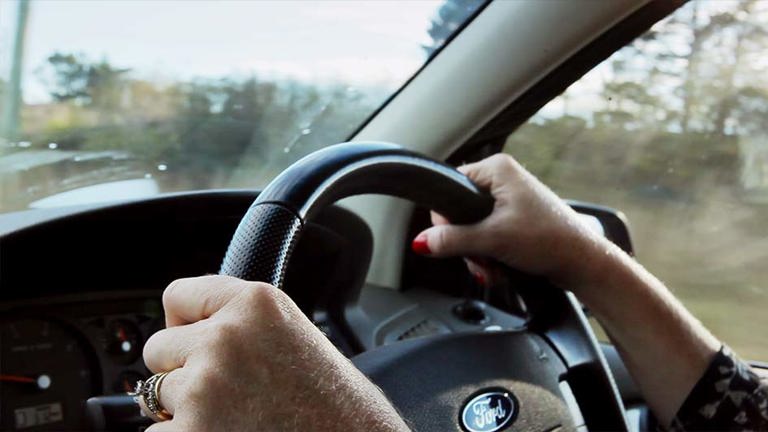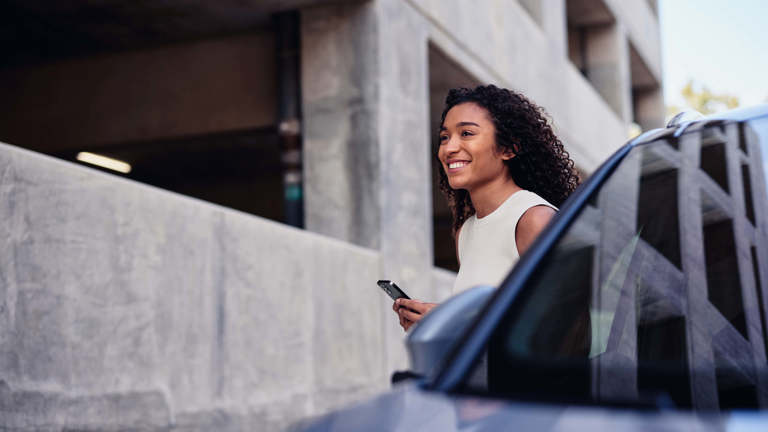While home and contents insurance can offer coverage against theft,1 fire2 and other damage to your property and belongings, home security systems can offer a further layer of reassurance for homeowners. Survey data from Finder shows 18% of Australians have security cameras installed on their properties, while 22% have alarms.3
In 2021-22, some 194,100 Australian households experienced a home break-in,4 and while security cameras can’t prevent crimes from happening, they may serve as a deterrent to would-be thieves. Also, if a crime does occur, the footage could help support the police in their investigations.
“Every insurance company will treat the issue of home security in their own way,” says Bryce Lowry, Youi Product Specialist.
“When you take out a home policy at Youi, we don’t need to know if you have security cameras; but when it comes to contents cover, we do ask about the doors, windows and locks at the property and whether it has a working burglar alarm that makes a noise when triggered, which can all have an impact on how at risk your contents are at your home, and on the conditions and price of your policy.”
Footage captured by home security cameras may also assist police in solving crimes. In Western Australia, police have even set up a database where community members with street-facing CCTV cameras can register their security cameras online, making it easier for police to find footage to support their investigations.5
Here we take a look at some of the home security systems on the market, as well as the legal requirements and privacy laws that may apply.
What’s the best home security camera system?
With so many different security cameras, video doorbells and smart home gadgets to choose from, the best home security camera system for your property will depend on factors such as your budget, the areas you’d like to cover, and the camera features you’d like to have.
These features may include:6
- Motion sensors: These activate the camera when motion is detected.
- Night vision: An infrared LED enables the camera to capture footage at night.
- Wireless or cable power supply: Do you want battery-operated cameras or ones that connect to your mains power supply?
- Sensor spotlight: A built-in light that’s triggered by movement.
- Remote access: Allows you to receive notifications or view the cameras from your phone or other device.6
Do security systems affect the cost of home insurance?
While there are countless DIY security camera systems to choose from, a professionally monitored system can be beneficial when it comes to your home insurance premiums.
“If you have a back-to-base alarm monitored 24 hours a day by a professional security company, we will want to note this on your Youi policy and it can reduce your premium,” says Lowry.
What are the privacy issues around camera use?
While Australia’s Privacy Act 1988 applies to organisations and agencies that use surveillance systems, it does not cover those operated by individuals on private property.7 However, various other state and territory laws may apply, so it could be worth checking before you purchase any surveillance systems.
In Queensland, for example, internal and external cameras may be used on a residential property for security purposes, but it’s an offence to record people in places they would expect to be private, such as a bathroom or bedroom, without first obtaining their consent.8
In New South Wales, the Surveillance Devices Act 2007 permits the installation of “optical surveillance devices” provided the owner or occupier of the property gives their consent.9
Some local councils also have their own laws in place and may require you to obtain planning permission to install home security cameras.7
The Queensland Government also advises taking care when positioning external cameras, as they shouldn’t impact upon your neighbour’s property.8
There are also separate laws around recording audio, so if your security cameras have audio capability, you might consider turning it off. Generally, the recording of private conversations without the consent of those involved is illegal in Australia.10
Do I need security footage to support my claim?
When it comes to making an insurance claim, having footage from a security camera might help. However, Lowry says that consideration of footage is not common practice yet.
“Even though the installation of security cameras around the home is increasingly common, our claims team have so far only received footage from customers a handful of times,” he says.
“But footage can definitely be useful; and in ways you might not expect. For example, we recently had a fire claim where a glass bottle of water became a magnifying glass when the sun shone through it. It was all caught on the security recording which made it that much easier and quicker for the fantastic claims team to confirm the cause of the fire and get on with helping our customer.”
Regardless of the security system you decide to install, Youi can help protect what’s important to you. Consider starting a quote for insurance that’s a bit more you-shaped.
1 Exclusions and limits may apply. For more details, see the Home insurance PDS
2 Exclusions and limits may apply. Cover not available within the first 72 hours of taking out the policy. For more details, see the Home insurance PDS
3 Source: Finder – Home insurance statistics in Australia 2023
4 Source: Australian Bureau of Statistics – Crime Victimisation, Australia, 2023
5 Source: Perth Now – WA Police appeal for locals to register CCTV cameras with Cam-Map WA, 2021
6 Source: CHOICE – What to know before buying a security camera
7 Source: Australian Government – Security cameras
8 Source: Qld Government – Household surveillance devices
9 Source: NSW Government – Surveillance Devices Act 2007 No 64
10 Source: Justice Family Lawyers – Can a Secret Recording Be Used As Evidence?, 2023




